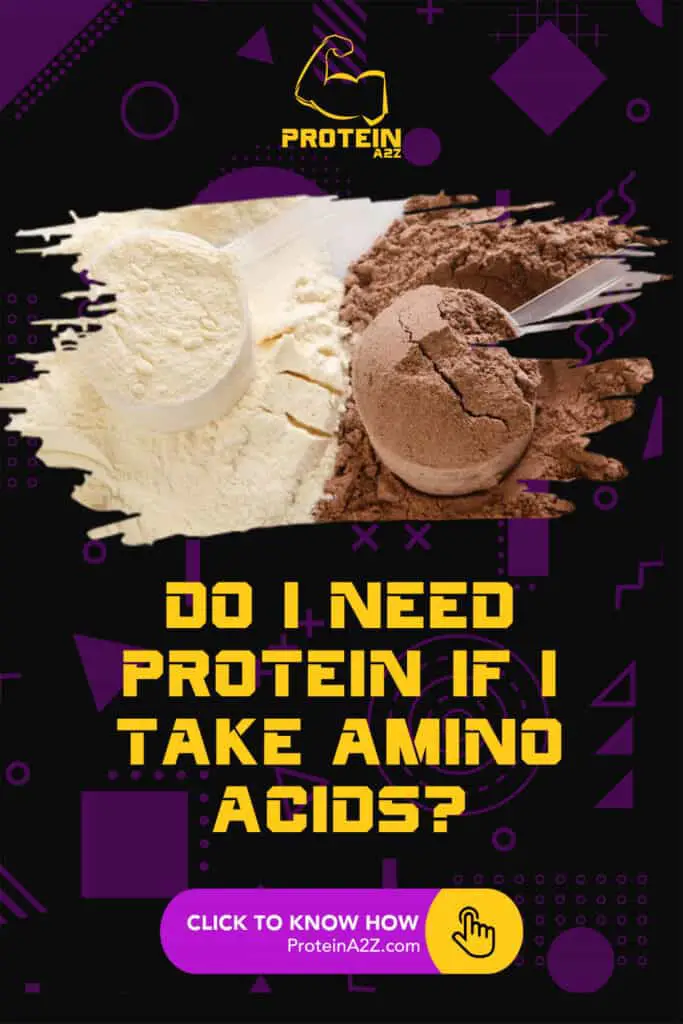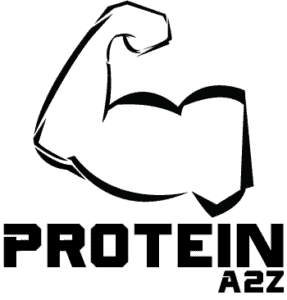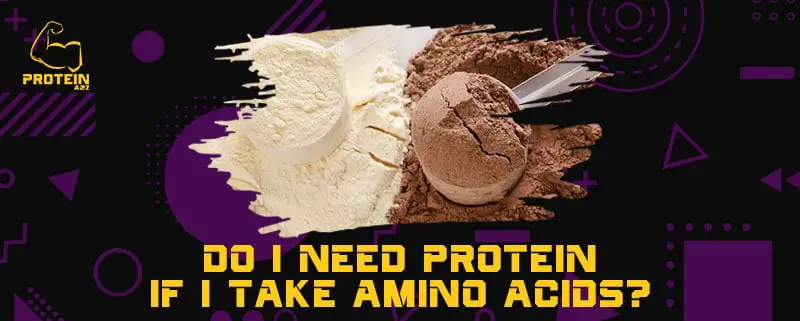Amino acids have become an increasingly popular supplement on the market. Many people question whether or not they need to bother with taking protein if they take amino acids. The short answer is “probably.”
This answer is vague because it depends on what exactly you mean. Do you need to consume protein at all if you take amino acids? Or, does it mean merely exchanging amino acids for a protein shake after a workout?
Before we go further, let’s look at the relationship between amino acids and protein.
Table of Contents
The protein and amino acid connection
Twenty-one different amino acids are labeled as “protogenic” as they are incorporated into proteins. Strands of up to 50 amino acids are termed “peptides,” and strands greater than 50 are labeled as “polypeptide”. The word “protein” is just terminology to describe either one, or more, strands of polypeptides.
So, protein is just used to describe a long chain of amino acids!
EAAs and BCAAs
When someone says “amino acids” in the context of supplementation, they are generally referring to either essential amino acids (EAA) or branch chained amino acids (BCAA).
There are a total of 9 amino acids that make up the essential amino acids. They are labeled as “essential” because the body cannot process them, and they must be consumed through your diet. Other amino acids which can be synthesized within the body are labeled as “non-essential” or “conditionally essential.”
Out of these 9 essential amino acids, 3 are known as branch-chain amino acids, or BCAAs. They are given this term due to their unique architecture. The BCAAs are unique in that they are the major players in muscle protein synthesis.
Do I need both EAAs and BCAAs?
In the general sense, yes, you need both. As you can see, if you only take EAAs or BCAAs, your diet will miss out on 12 other vital amino acids. While your body can synthesize them from other amino acids, it’s still best to consume them for greater bioavailability.
In the context of being used as a supplement, research has shown that taking EAAs with carbohydrates is as effective in stimulating muscle protein synthesis as whole protein. Therefore, theoretically, you shouldn’t need to.
That being said, the vast majority of athletes take whole protein to ensure they get all the amino acids and greater calorie supply which is needed post-workout.
- Should you drink a protein shake for breakfast?
- Is it needed to drink a protein shake within 20 min after a work out?
- Does protein powder have any negative effects?
FAQs about amino acids
What is the best use of amino acids?
Amino acids are great to use as a mid-workout drink as they are easy to drink. Many will also use them when they are fasting. This practice allows people to feed the muscles faster and without consuming too many calories.
Do amino acids have calories?
It is a common misconception that amino acids don’t have calories due to food label regulations. Most amino acids products will have their calories listed as either 0, or very low. This is because food labels can only list carbohydrates, fats, and proteins as providing calories. Technically, individual amino acids aren’t whole proteins so they can’t be counted as such.
Since protein has 4 calories per gram, so do your amino acids because protein is just long strands of amino acids!
How many amino acids do I need?
Most amino acid companies will have measured the proper amounts needed, so 1-2 scoops will be sufficient.
What’s cheaper, amino acids or protein?
Protein! Amino acids require more processing which causes their cost to be higher.

User comment about protein choices
How To Choose The Best Protein For Your Bodybuilding Goals
If you’re looking to take the next step toward gaining lean muscle mass and gaining muscle mass, then protein is the answer. It doesn’t matter whether you’re a professional athlete or just starting out in your fitness goals, protein is the key.
You can get the muscle you want from protein alone. The best protein shakes for muscle building are great for weight loss and recovery as well, so they’re even beneficial for weight loss and recovery as well.
Whether you’re a professional athlete, a bodybuilder, or a runner or cyclist, you’ll want protein shakes after your workout sessions, but athletes, in particular, can really benefit from adding protein to their diet to give them that extra boost when they want to build muscle. Protein is great for your body overall, and it’s something you should definitely be adding to your diet.
Many types of protein
There are many types of protein on the market today, so when it comes to body building you’ll find that there’s many different choices in front of you. If you’re an athlete, the best type of protein is one that is easy to get into. Whey protein, which are easily digested by your body, and can be used to boost your energy during your workout sessions, is the perfect choice for this.
If you’re looking to gain lean muscle mass, however, it’s important to get the protein that comes from natural sources. This way, the body can absorb the protein more easily into the system, and it won’t have to work too hard to produce energy for the body.
Protein is the foundation for building muscle. If you’re an athlete looking to use protein to enhance your performance, getting a supplement like whey is an excellent choice for the body-building aspect of the game.
If you’re an athlete, bodybuilder, or simply trying to gain lean muscle mass and gain muscle mass, the best type of protein is one that can be easily digested. Protein shakes can be made from whey, soy, eggs, egg whites, or any number of other natural sources. They’re perfect for your daily regimen if you’re an athlete, bodybuilder, or just want to be able to take the next step toward the kind of shape you’ve always wanted.

